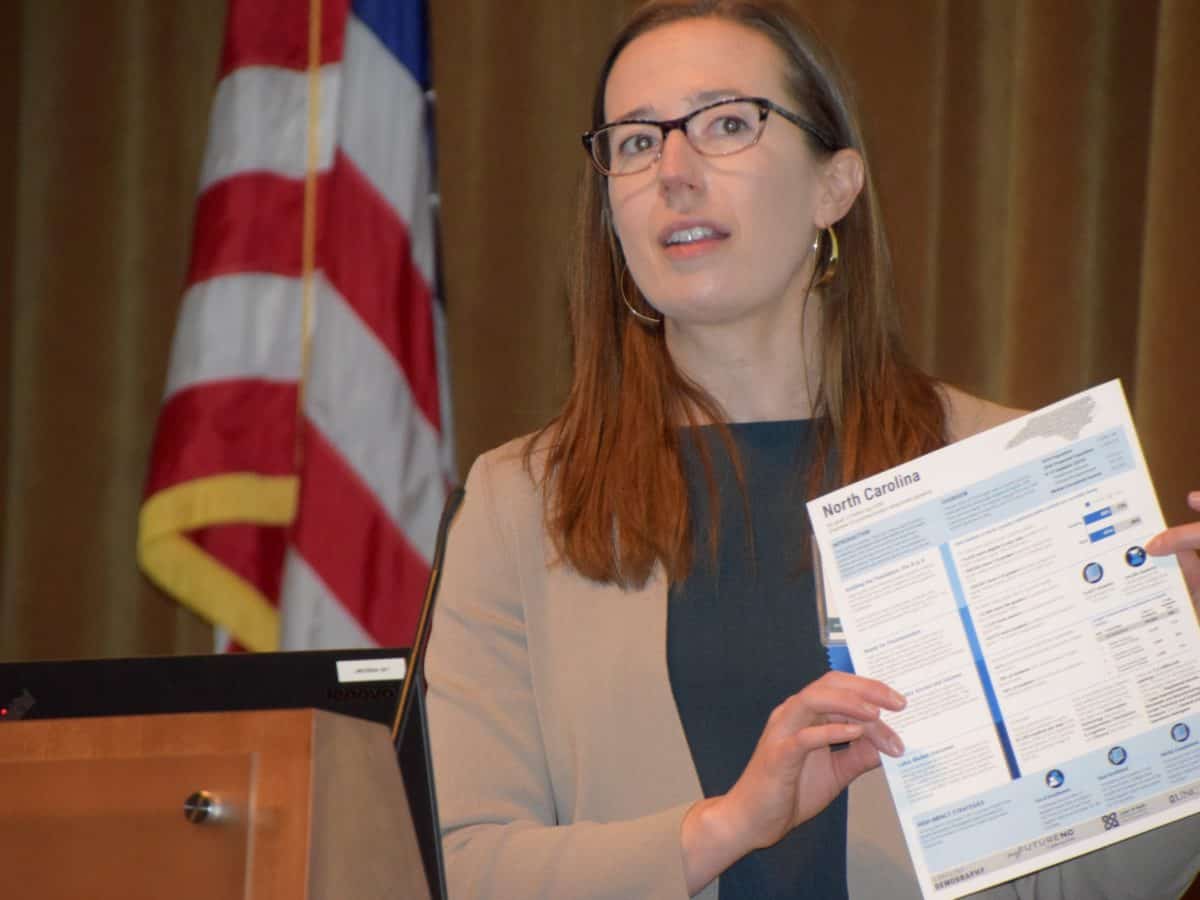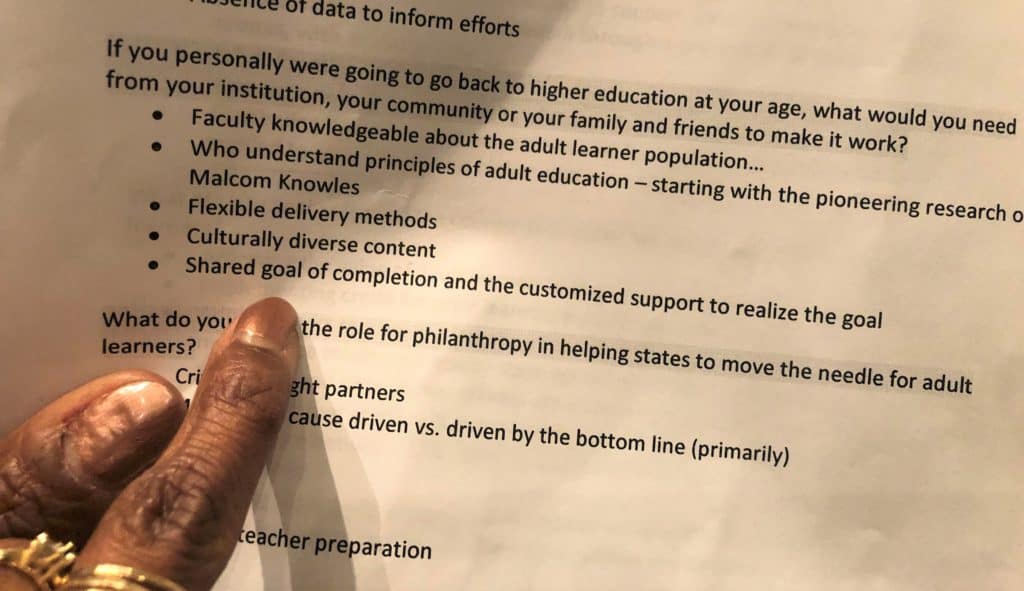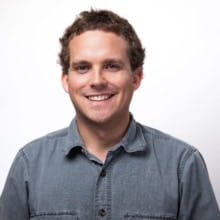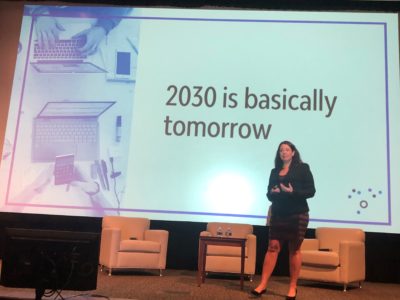
Think about it. If you decided to go back to community college or university for more education now, what would it take from the institution, the community, your family, and your friends to make it work? Adult learners matter, and here is why.
No doubt credentials, certificates, and degrees “are vital for success in today’s world,” says Scott Jenkins, the strategy director for the Lumina Foundation.
But, he says, the work towards attainment goals — Lumina aspires to “increase the proportion of Americans with postsecondary credentials to 60% by 2025” and myFutureNC aspires for 2 million North Carolinians to have a high-quality credential or degree by 2030 — “is not really just about jobs.”
“It’s the learning that comes through higher education that enriches our lives,” says Jenkins. “It opens doors to options and opportunities, it strengthens our families, it makes us more informed, which is essential to a healthy democracy, and it enhances our global economy.”
Jenkins was talking about adult learners at a recent gathering entitled, “North Carolina’s Adult Promise: The Higher Education and Workforce Imperative,” held in Chapel Hill on Feb. 13, 2020. Adult Promise is a partnership between Lumina and the State Higher Education Executive Officers Association (SHEEO) investing in 15 “state-led efforts to better serve adults seeking education after high school.”
“This is one of the most important conversations that we need to be having in higher education today,” said Denise Pearson, vice president of academic affairs and equity initiatives for SHEEO. “There are avenues for us to be more intentional about adult populations in those, I’d like to call them, underestimated communities.”
Pearson said, “you have created a sense of urgency here in North Carolina around the need to tap into and cultivate the adult student population.”
The SHEEO website offers a wealth of resources for states serving adult learners. It’s worth a look.
“Just opening up aid or just creating a program for adults doesn’t magically change your enrollment mix within your state or within your institution,” cautions Jenkins. “These (students) are hard-to-find, hard-to-serve because we already failed them once.”
Jenkins said the push to serve adults at the state policy level has to be connected to changing practices on the ground, including prior learning assessments, articulation agreements, acceptance of course credits, and when courses are offered.
“In a lot of cases,” said Jenkins of the work with adult learners across North Carolina, “this is a groundswell of support from faculty, from institutions, and the system to say we want to serve these students and we want to serve them better.”
1 million in NC with some college, no degree for ‘a thousand different reasons’
“There are individuals out there who would like to come back,” said Cecilia Holden, president and CEO of myFutureNC. To meet North Carolina’s attainment goal, she says, it will be critical to identify those individuals, focus on adult learners, and bring them back to further their education.
We lose these learners, Holden said, for “a thousand different reasons” — from conflicts with school and work to financial stress to life events like pregnancy. What does it take to get them back? Affordability, convenience, and usefulness, she said.
Which brings us back to the question. What would it take for you to go back into higher education now? Pearson’s list included faculty trained in the method and practice of working with adult learners, flexible delivery of coursework, culturally diverse content, and shared completion goals.

What’s your list? Let me know on Twitter @Mebane_Rash.
Wish you could have been there? Here are the videos.
This video features an update on the work of myFutureNC, including the roll out of a new data dashboard, county profiles, and how data is being put into practice through leadership development with Cecilia Holden, president and CEO of myFutureNC; Rebecca Tippett, director of Carolina Demography; and Jemilia Davis with the Belk Center for Community College Leadership and Research.
Here is the video referenced by Holden. Here is the dashboard and county profiles referenced by Tippett.
This video features Denise Pearson, vice president of SHEEO, and Scott Jenkins, the strategy director for the Lumina Foundation, talking adult promise.
There’s more. We previously published this article on the keynote address.
I’ll have one more article on national perspectives on connecting adult learners, workforce needs, and higher education, featuring the work of the Council for Adult and Experiential Learning and The Graduate! Network.
Behind the Story
Taylor Shain produced the videos featured in this article.




